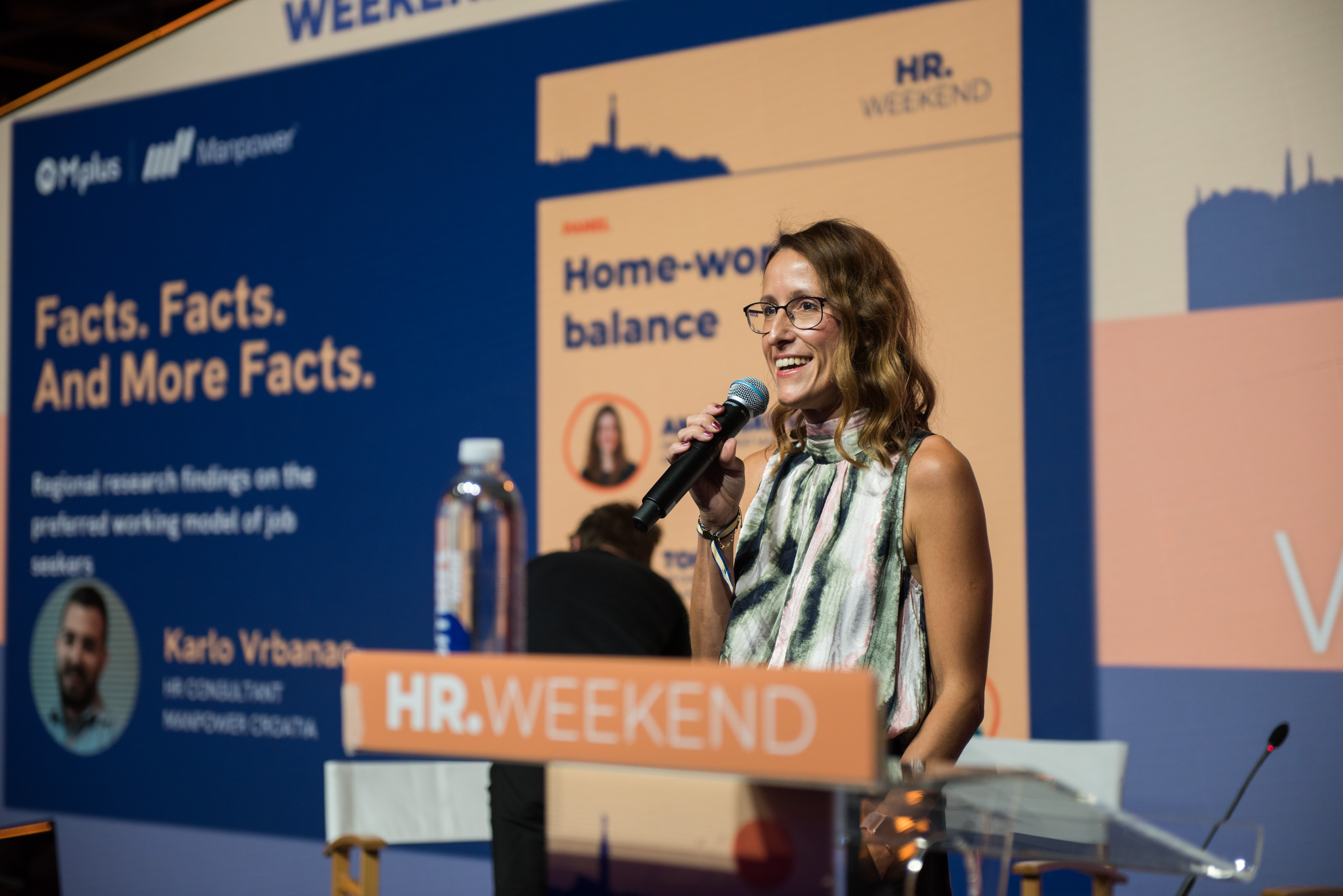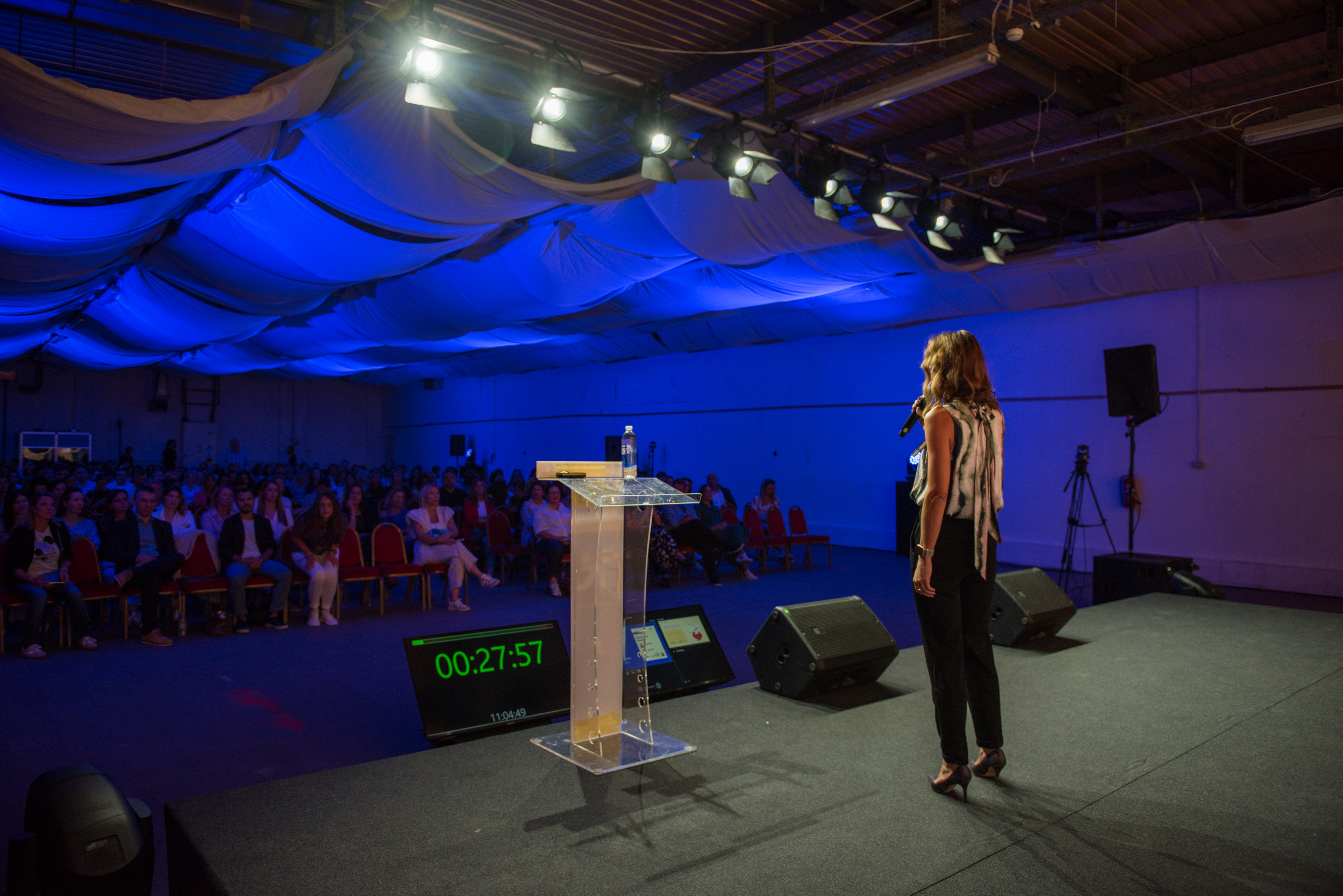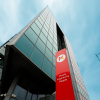Rovinj, Croatia, September 20th, 2024 – As businesses continue to navigate the changing landscape of work in a post-pandemic world, finding the right balance between office and remote work is increasingly becoming a decisive factor in both employer choice and job satisfaction.

Bruna Kostelac Košir, Chief People Officer, Mplus
Photo: Matej Rebernišak
Mplus and Manpower Croatia, sister companies within the BOSQAR INVEST group, presented new research on these trends during the HR.Weekend Panel at the Weekend Media Festival in Rovinj.
Moderated by Bruna Kostelac Košir, Chief People Officer of Mplus, the panel focused on how modern work models impact employees’ decisions.
Joining Kostelac Košir were HR leaders Ana Visković, HR Development Manager at Span, and Tome Barić, Human Resource Director at INA , who contributed their industry expertise and perspectives.

Tome Barić, Human Resource Director at INA and Ana Visković, HR Development Manager at Span at the panel discussion moderated by Mplus's Bruna Kostelac Košir
Photo: Matej Rebernišak
INA’s Barić emphasized the importance of listening to employees when shaping work policies: “If you want satisfied clients, you need satisfied employees. Flexibility is everyone’s responsibility in the organization, and it should come from the needs of employees – not just management rules. It’s not only HR’s role, but HR needs to participate and support this shift. There is no generational divide when it comes to the demand for flexibility.”
Key findings from the research were presented by Karlo Vrbanac, HR Consultant at Manpower Croatia.

Karlo Vrbanc, HR Consultant at Manpower Croatia
Photo: Matej Rebernišak
Key Findings
Myth #1 | The pandemic is gone. We’re back to the office.
53% of respondents work on-site, yet only 21% express a preference for on-site work.
49% currently work in their preferred working model, while only 17% desire to return to the office full-time.
Myth #2 | Flexibility is a trend driven by younger generations.
Contrary to popular belief, 50% of respondents across all age groups reported that the option to work from home and maintain work-life balance is a key factor when considering a job change.
Myth #3 | Salary will always trump flexibility.
53% of respondents indicated they would accept a smaller financial package in exchange for more flexibility in their work arrangements.
Myth #4 | Flexibility is a benefit that only some employees need.
An overwhelming 66% of respondents, again spanning all age groups, cited work-life balance as a critical deciding factor when evaluating potential employers.
Myth #5 | Large companies aren't flexible.
The research revealed that 51% of employees in large organizations (500+ employees) are currently working in flexible models, either remote or hybrid.
Objective Insights and Practical Discussions
The research findings and panel discussion contributed to the debate on work models by objectifying the topic with fresh, up-to-date data on the preferences of job seekers across the region.
The findings were shared with the HR community, offering a valuable snapshot of current trends and challenges.
Additionally, the panel – and Visković’s contributions, in particular, – tackled the important issue of productivity, examining how HR contributes by shaping work models and balancing work-life priorities.
This highlighted the opportunity for HR to reposition itself as a key player in driving critical business decisions.

Photo: Matej Rebernišak



